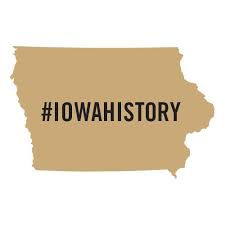Will property taxes in Des Moines continue to decline?

KATHY A. BOLTEN Jul 1, 2019 | 2:48 pm
<1 min read time
0 wordsAll Latest News, Government Policy and LawThe Des Moines City Council voted to lower the property tax rate days after voters in March approved the 1-cent local option sales tax. Whether Des Moines property owners will see even lower property tax rates in future years is yet to be determined.
“I can tell you as a city manager there is no need” for a property tax rate] increase, City Manager Scott Sanders said. “So the two options left is whether [the rate] will remain the same or will it go down.”
Des Moines retailers today will begin charging an additional penny sales tax for every $1 spent; the tax is expected to generate $37 million for Des Moines. State law dictates that half of the money collected must be targeted at property tax relief. (The remainder of the money Des Moines collects will be put toward infrastructure upgrades, public safety enhancements and neighborhood improvements.)
The City Council in March voted to lower the 2019-20 property tax rate by 60 cents to $16.64 per $1,000 of assessed valuation. The rate is the lowest it’s been since the fiscal year that began July 1, 2012.
Decisions on whether to drop the rate even further for the 2020-21 budget year have not yet been made, Sanders said.
This year, the value of property rose an average of 10% in Polk County, which means cities, even if property tax rates remain constant, will collect more revenue.
Whether money would be needed for new or expanded projects is not yet known, Sanders said. “We need to catch up with things that have been delayed for way too long,” he said.
Sanders said the city’s budget grows between 3% and 4% annually to accommodate such things as providing services to newly developed areas, employee salary increases and higher benefit costs.
Whatever city officials decide about future property tax rates will have to be done with input from residents.
Under a new Iowa law, if cities want to raise additional revenue from property taxes, they must hold a public hearing and explain how the additional money will be used. In addition, if revenue raised by the property tax increases more than 2%, two-thirds of elected officials must approve the rate.
“Even if a city isn’t changing the property tax rate but they are going to get more revenue, they will have to have a public hearing and they will have to explain why they need the additional revenue,” said Gretchen Tegeler, president of the Taxpayers Association of Central Iowa. “They have to be transparent.”
Sanders said discussions about the city’s budget for the fiscal year that begins July 1, 2020, will start this fall.
The extra penny sales tax will also be charged beginning today in Alleman, Altoona, Pleasant Hill, West Des Moines and Windsor Heights, where voters also approved increasing the local option sales tax. In its first year, the extra penny tax is expected to generate about $50 million in the six Polk County communities charging the tax.
On Aug. 6, voters in Bondurant, Clive, Grimes, Johnston and Urbandale will decide whether to implement the 1-cent tax.









